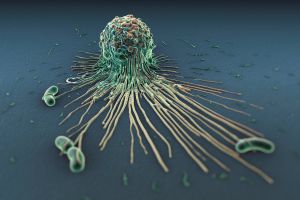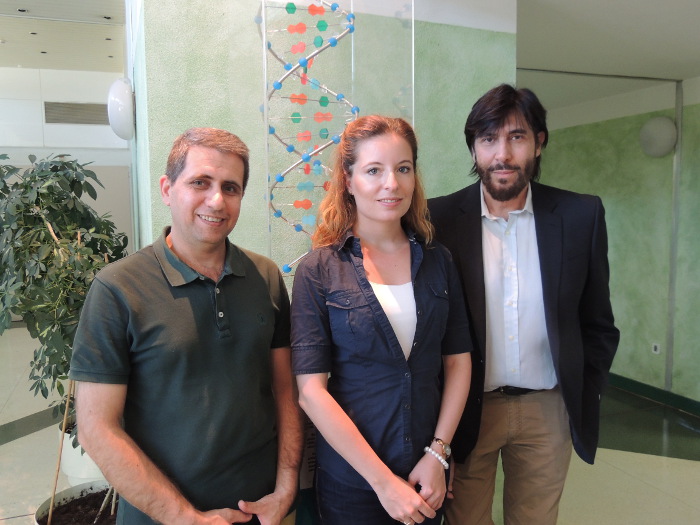When infected by bacteria, the mammalian immune system reacts quickly by activating its artillery to eliminate the foreign invaders. Macrophages are the "soldiers" par excellence who start this battle. Once the infection is controlled, the remains of the battle must be removed and damaged tissue repaired. This is when macrophages are transformed from an active, proinflammatory state (M1) to a reparative state (M2) responsible for appeasing inflammation and clearing the area.
In an article published today in the Journal of Clinical Investigation, scientists at the Centro Nacional de Biotecnología of the CSIC (CNB-CSIC), with the IdiPAZ and the University Hospital Príncipe de Asturias, explain some of the secrets behind the transformation of macrophages from a destructive phenotype to reparative cells. The balance between these two states is essential in overcoming diseases such as sepsis, cancer and atherosclerosis.
According to the study, the p21 protein promotes macrophage reprogramming from the M1 to the M2 type. "To date, we did not know the molecular mechanism that controls this change in macrophages. Now we have identified p21 as one of the key elements in this process," explains Dimitrios Balomenos, CNB-CSIC researcher and senior author of the article.
The p21 protein affects macrophages by controlling production of IFN-beta, a proinflammatory molecule. This newly described p21 function is independent of its effects on cell proliferation during development.
The study was conducted with experiments in vitro, in rodents, and in patients with sepsis. In all three cases, the researchers confirmed that p21 acts as a brake on inflammation, controlling excessive activation of M1 macrophages.
"It was important to ensure that the results in animals were also extensible to humans, as this is not always the case," explains Balomenos.
Between septic shock and uncontrolled infection
Sepsis, a generalized inflammatory response produced as a result of a massive, systemic infection by pathogenic bacteria, causes millions of hospital deaths in developed countries. This syndrome is caused not by the invading microorganisms, but rather by toxic products released by the patient’s own hyperactivated M1 macrophages. If hyperinflammation persists, this storm of toxic factors can lead to septic shock and patient death.
In many cases, however, the M1 proinflammatory response leads to a reprogramming cells to M2. The balance between M1 and M2 responses is lost and the patient develops a state of immunosuppression. This macrophage reprogramming prevents septic shock, but increases the risk of a secondary infection that could also lead to patient death. "The majority of deaths occur in this second stage; the immune system is depressed and cannot deal with the infection, which spreads rapidly,” explains Balomenos. “It is as if the response to a major invasion leaves the patient defenseless and vulnerable to a second attack."
According to the conclusions of the study, macrophages from the sepsis patients analysed expressed high p21 levels, leading to low IFN-beta levels and an immunosuppressed profile.
Levelling the balance
"Our results indicate that p21 is a regulator of this balance. This opens the way to the design of new treatments for sepsis," says the researcher.
In addition, the authors of the study ensure that these findings can be applied to other diseases in which up- or downregulation of immune system activity is of interest. An example is cancer, in which a strong response M1 would be desired; others are atherosclerosis or autoimmune diseases, for which the M2 response would be boosted.
- Gorjana Rackov, Enrique Hernández-Jiménez, Rahman Shokri, Lorena Carmona-Rodríguez, Santos Mañes, Melchor Álvarez-Mon, Eduardo López-Collazo, Carlos Martínez-A, Dimitrios Balomenos P21 mediates macrophage reprogramming through regulation of p50/p50-NF-κB and IFN-β. Journal of Clinical Investigation (2016) Doi: 10.1172/JCI83404







